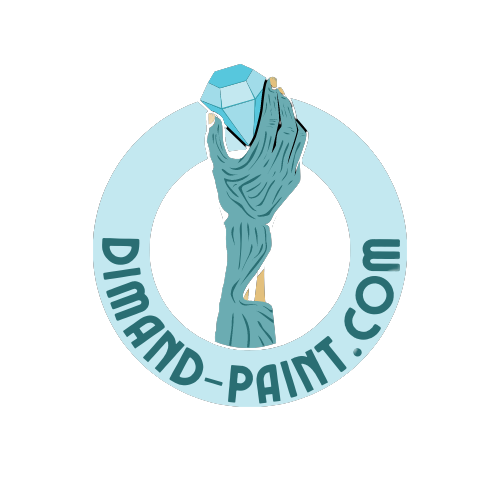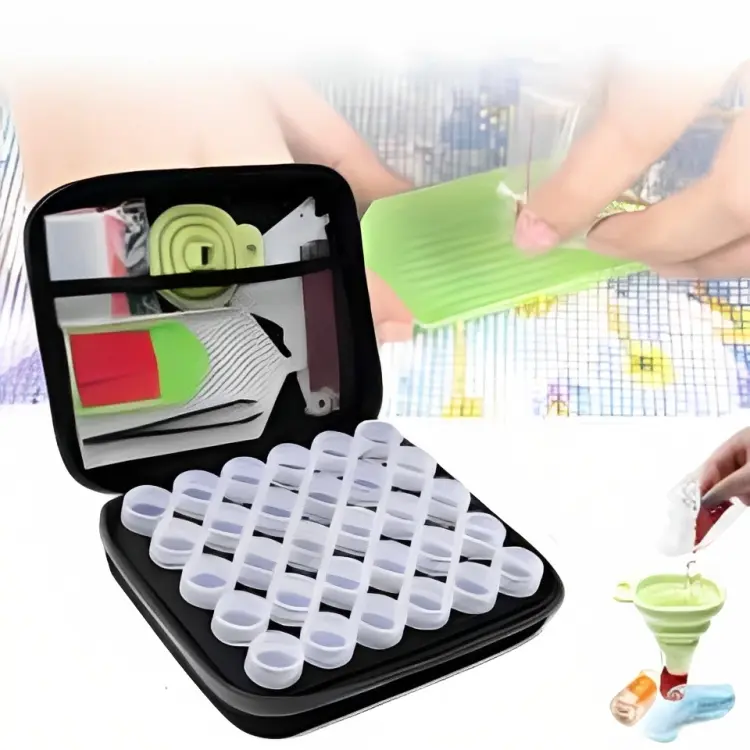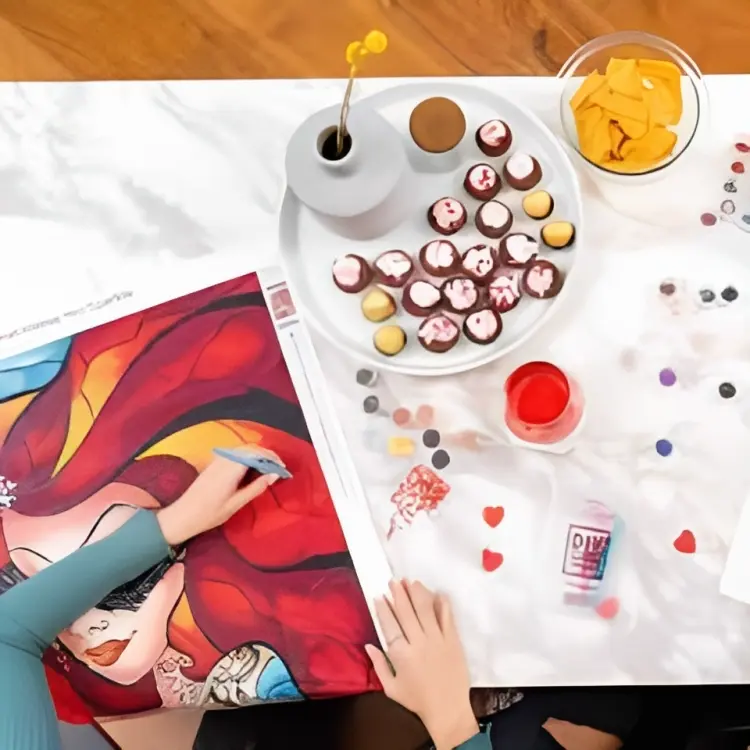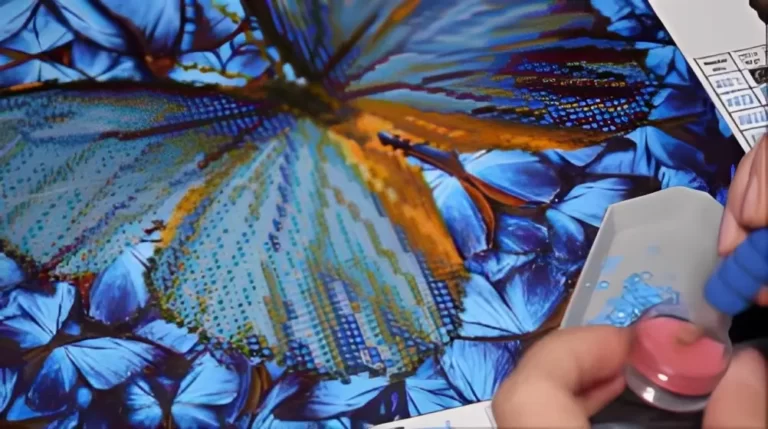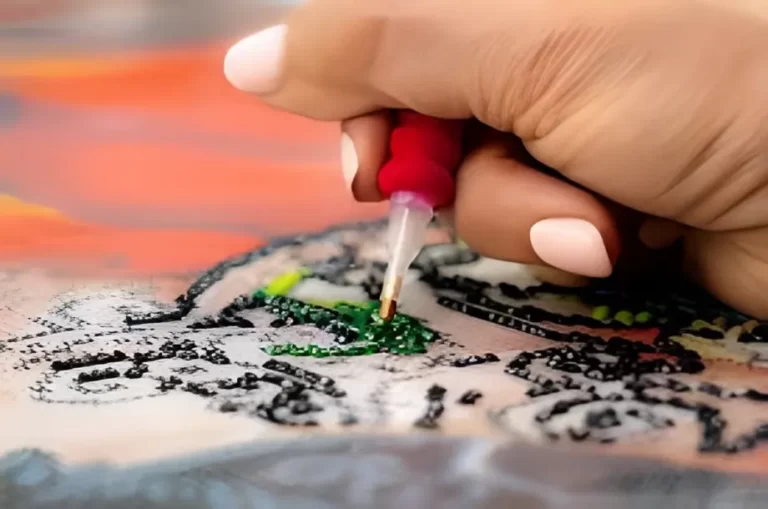Diamond Painting Techniques for Creating a Watercolor Effect?
Diamond painting has taken the crafting world by storm, offering a unique and mesmerizing way to create beautiful artwork using tiny, sparkling resin rhinestones. While traditional diamond painting involves placing rhinestones in a color-coded pattern, there’s an innovative technique that’s gaining popularity – creating a watercolor effect.
This technique adds a dreamy and artistic touch to your diamond paintings, transforming them into stunning pieces that capture the essence of watercolor paintings. In this guide, we’ll explore the step-by-step process of using diamond painting techniques to achieve a captivating watercolor effect.
Understanding the Watercolor Effect in Diamond Painting
Unlike traditional diamond painting where each diamond is placed in a designated spot, the watercolor effect involves strategically placing diamonds of different shades and colors to mimic the blending and flowing nature of watercolors. This technique creates a seamless transition between hues, making the artwork appear as if it were painted with watercolor brushes.
Choosing the Right Canvas and Design
Opt for a canvas with a larger surface area, as this technique requires more space to effectively blend the colors. Designs with intricate details and larger color sections work best for the watercolor effect. Whether you’re recreating a serene landscape or a vibrant floral arrangement, the design should lend itself to the fluidity of watercolor art.
Gathering the Supplies
In addition to the standard diamond painting supplies, you’ll need a broader range of diamond colors that can be blended together. Acquire a variety of shades within the same color family to create smooth transitions. Also, consider investing in a light pad to enhance visibility while placing diamonds.
Preparing the Canvas
As with any diamond painting, start by unrolling the canvas and flattening it out. Secure the edges to ensure it remains taut throughout the process. Prepare your work area with all necessary supplies within arm’s reach.
Mixing Colors and Shades
Begin by identifying the areas in the design where the watercolor effect will be most effective. Sort the diamonds according to color families and shades. Experiment with different combinations on a separate surface to determine which shades blend seamlessly.
Placing the Diamonds
Instead of placing diamonds in a rigid pattern, start by placing a base color along the edges of the section you’re working on. Gradually introduce lighter or darker shades, pressing them closely together to create a gradient. Use a flat-edged tool to gently nudge diamonds closer for a seamless blend.
Blending and Layering Techniques
The key to achieving a realistic watercolor effect lies in the blending and layering of colors. As you place diamonds, slightly overlap them to create a harmonious transition. Use your tool to press down on the edges, ensuring there are no visible gaps.

Enhancing Depth and Dimension
To add depth to your artwork, concentrate darker shades in areas that would naturally have shadows. This creates a sense of dimension, making your painting come to life. Experiment with layering diamonds of varying shades to achieve the desired effect.
Adding Highlights and Details
Just as watercolors highlight certain areas of a painting, use lighter diamond shades to add highlights. This can be applied to water reflections, sky highlights, or any element you want to emphasize. The contrast between highlights and shadows adds visual interest.
Sealing and Finishing
Once your watercolor diamond painting is complete, it’s essential to seal the diamonds to prevent shifting and maintain the effect. Apply a clear adhesive sealant evenly over the entire canvas. This not only secures the diamonds but also enhances the overall appearance.
Displaying Your Watercolor Diamond Painting
Frame your watercolor diamond painting to showcase its intricate beauty. Choose a frame that complements the color palette and enhances the watercolor effect. Display it in a well-lit area where the colors can shine and capture attention.
Benefits of Watercolor Diamond Painting
The watercolor diamond painting technique offers a multitude of benefits, including the freedom to experiment with colors, the opportunity to create unique and personalized artwork, and the meditative and relaxing nature of the craft. It’s a rewarding experience that allows you to explore the world of both diamond painting and watercolor art.
Conclusion
Combining the brilliance of diamonds with the ethereal quality of watercolors opens up a world of artistic possibilities in diamond painting. The watercolor technique offers a fresh and captivating approach that transforms ordinary diamond paintings into extraordinary works of art. By strategically blending and layering diamonds, you can create stunning pieces that capture the essence of flowing colors and bring your imagination to life.
